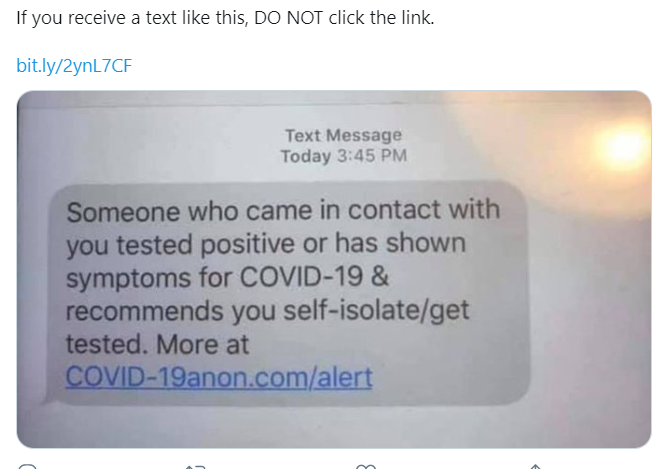INFORMATION FROM AGE UK:
Reports suggest that there has been an increase in scams since the Coronavirus pandemic began. These include online shopping, where people buy items like hand sanitiser or face masks which never arrive, phishing emails and suspicious callers, offering bogus shopping services or fake Coronavirus tests.
General scam advice includes:
- Don’t open the door to anyone calling ‘out of the blue’.
- Don’t give money upfront to someone on the doorstep offering to shop for you, unless you know them well and trust them.
- Be aware that official bodies are not offering coronavirus testing door to door.
- Do not click links or open emails from senders you don’t know.
- Buy only from well-known online retailers.
- Do not give out personal information such as bank details, addresses, existing insurance, pension, or investment details.
If someone is unable to get assistance from people they know and trust, the consortium advises people use well known organisations or registered charities for support. It’s useful to know that when visiting people or offering ‘doorstep’ services, the charities listed above will always:
- Call in advance or have taken a call from the client.
- Let the client know the name of the person to expect.
- Wear ID.
- Take payment in advance through online/telephone payments. Payment will not be taken on the doorstep unless the client is already known to the charity and a prior agreement has been made.
COVID-19 SCAMS INCLUDE
Doorstep crimeCriminals targeting older people on their doorstep and offering to do their shopping. Thieves take the money and do not return.
Doorstep cleansing services that offer to clean drives and doorways to kill bacteria and help prevent the spread of the virus.
Online scamsEmail scams that trick people into opening malicious attachments, which put people at risk of identity theft with personal information, passwords, contacts and bank details at risk. Some of these emails have lured people to click on attachments by offering information about people in the local area who are affected by coronavirus.
Fake online resources – such as false Coronavirus Maps – that deliver malware such as AZORult Trojan, an information stealing program which can infiltrate a variety of sensitive data. A prominent example that has deployed malware is ‘corona-virus-map[dot]com’.
Refund scams
Companies offering fake holiday refunds for individuals who have been forced to cancel their trips. People seeking refunds should also be wary of fake websites set up to claim holiday refunds.
Counterfeit goods
Fake sanitisers, face masks and Covid19 swabbing kits sold online and door-to-door. These products can often be dangerous and unsafe. There are reports of some potentially harmful hand sanitiser containing glutaral (or glutaraldehyde), which was banned for human use in 2014.
Telephone scams
As more people self-isolate at home there is an increasing risk that telephone scams will also rise, including criminals claiming to be your bank, mortgage lender or utility company.
Text scams

Donation scams
There have been reports of thieves extorting money from consumers by claiming they are collecting donations for a COVID-19 ‘vaccine’.